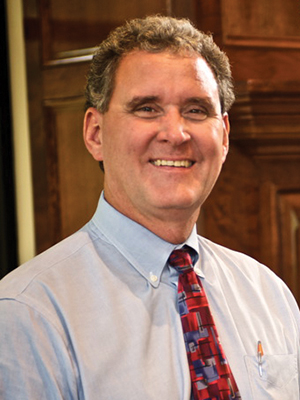 David Ammons
David AmmonsDavid Ammons is president of Retirement Living Associates, Inc. (RLA), a company which provides planning, development, marketing, and management services for new and existing retirement communities. He has worked in and with Senior Living Communities since his graduation from Wake Forest University in 1985.
As I reported in the Winter Guide, I have invited three professionals with experience in gerontology to write a column from their perspective. Phyllis Mayo, Chaplain at Springmoor Life Care Retirement Community, is author of the following column.
You can spot them in a crowd. There’s no need to hear what they have to say. Their appearance speaks for them.
I’m talking about people who are well-rounded, who find something good, interesting, intriguing, or challenging in every facet of life. They bring light into a room, thoroughly enjoy the company of others, enliven a conversation, and offer a unique perspective to ideas and situations.
In the almost 30 years of working in the same senior living community, I have found that residents who are interested in others more than in themselves are the happiest. This characteristic does not develop overnight. Although some people seem to be born with a sunny disposition, the act of being thoughtful and caring can be developed even in later life.
It is always refreshing to see people “blossom” after they settle in a retirement community as they begin to gain a new perspective on life in what will probably be their final home.
While engaging in a discussion about the challenges of aging, one participant reported that she would lie in bed at night, reviewing her life, reflecting on where she had come from, who she had been as wife and mother, and then discovering to her delight that she was in a new position in which she could think on her own and create a new life for herself.
A refrain in a popular song says, “People who need people are the luckiest people in the world.” Some people need the attention of others for true happiness. Some need to expend their energies on behalf of others. And some, like Elizabeth Crawford, feel a strong need to prepare food for the enjoyment of other people.
Although Elizabeth has multiple health conditions, some of which could take her life in a moment, she is deeply concerned with issues of social justice. She marches in rallies, working to make the world around her a better, fairer place in which to live. One way she expresses her caring is by cooking. She spends a lot of money and countless hours preparing food and delivering it to programs for the homeless. Caring friends and family urge her to ease up, to scale back, but to no avail. Elizabeth is living to serve others.
Certainly some seniors see meaningful engagement with others as an expression of spiritual life. Most religions encourage the ministry of service, and yet involvement with those who are not like you indicates a healthy outlook on life in all of its multiple dimensions.
In our retirement community, the “pathway to wellness” means attending exercise groups (physical), eating in the dining room (nutritional), recycling (environmental), participating in study groups (intellectual), worshipping at Vespers (spiritual), gardening (vocational), writing memoirs or telling stories (emotional), and enjoying morning coffee with friends (social).
All of these along with other aspects of a well-rounded life lead to satisfaction, and, yes, true happiness in the later, challenging years of life. People who need people aren’t just lucky; they are wise, healthy, helping and happy!

